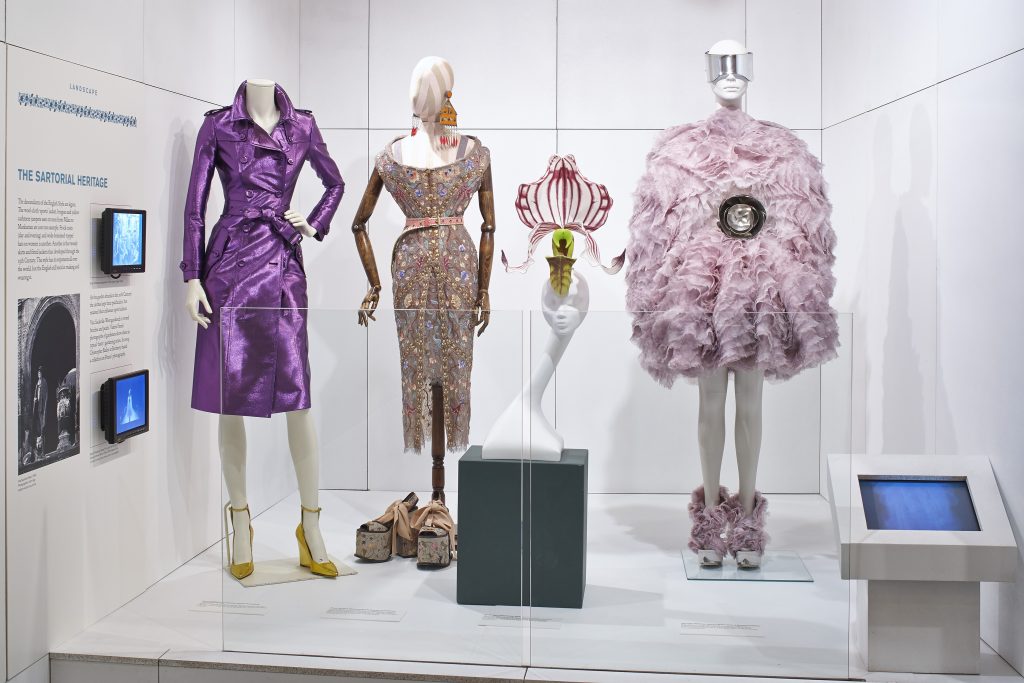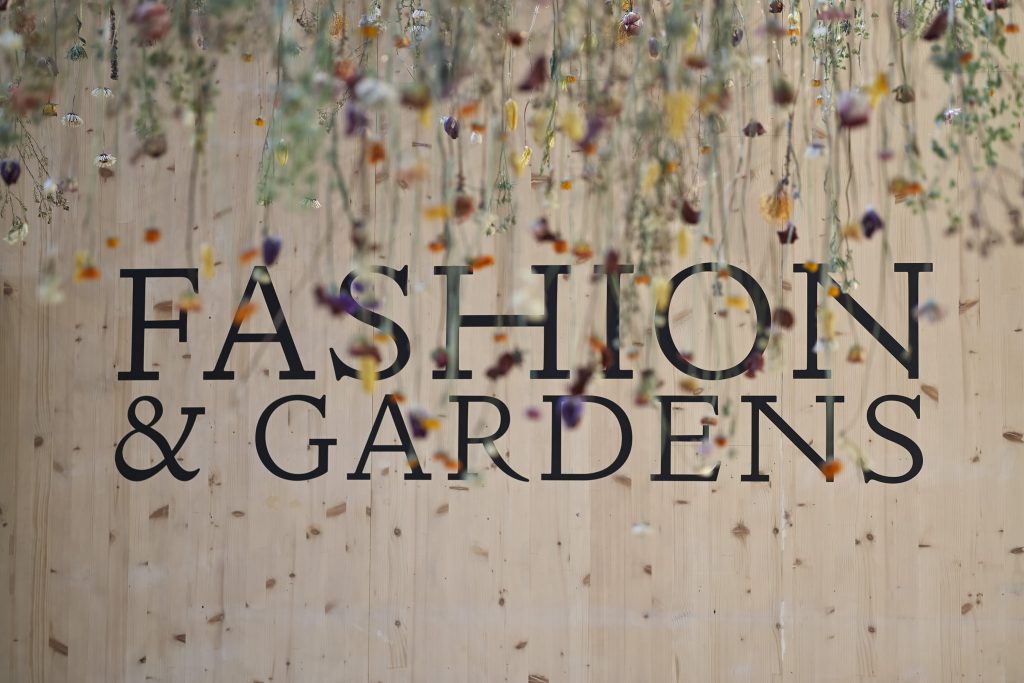Fashion and Gardens: spring/summer – autumn/winter


Like gardeners working in their gardens, the modern fashion world follows a seasonal cycle, always looking ahead to the next season, trying to anticipate the changes of light, temperature, mood and scale that await at the turn of the year. Both gardens and dress aim to bring a sense of occasion to a season.
Midsummer is more authentic if passed among organza and roses; russet velvet and gold-licked chrysanthemums concentrate our sense that autumn has arrived.
Fashion & Gardens was the first exhibition to explore the relationship between fashion and garden design, from the age of Queen Elizabeth I to the catwalks of London Fashion Week 2014. The exhibition, curated by writer, historian and Garden Museum Trustee Nicola Shulman, identified and celebrated the many links and correspondences between gardening and fashion design. The connection has existed for centuries, but this exhibition was the first attempt to make it articulate.
We featured designers from Valentino and Alexander McQueen to Philip Treacy and Christopher Bailey who continue to be inspired by the garden. Of his Spring/Summer 2014 collection Bailey commented “I wanted this idea of an English rose garden. There are all these very dusky, gentle, soft colours and then all of a sudden you’ll see a spiky, very red rose in the middle of it.”
The Museum provided an insight into the private gardens of our leading designers: we asked why so many garden designers make gardens from which they draw private inspiration.
We examined how fashion and gardens have shared some of their most alluring decorative elements and the phenomena of particular flowers’ popularity at particular periods.
In the age of plant collectors such as John Tradescant, dresses at the royal court were embroidered with accurate botanical images of flowers from overseas, and garden designs began to inspire clothes – as in Lettice Newdigate aged two, a portrait of a Jacobean heiress in a garden which was exhibited in London for the first time since it was painted in 1606.
The exhibition featured examples of the flower craze of camellias in the 1840s to sunflowers in the 1890s and daisies and Mary Quant in the 1960s, including a number of remarkable loans from the British Museum, National Gallery and several fashion houses. The V&A made an exceptional contribution to the exhibition of three rare designs on silk by Anna-Maria Garthwaite.
The British Museum loaned a rarely seen 1779 collage of the Common Corn Poppy by Mary Delany (1700 –1788). Mary was an avid gardener and accomplished at needlework, drawing, painting, and cutting paper.
The preoccupation with floral decoration was brought right up to date with more recent examples and images of floral and garden themes in contemporary dress and accessories, like Yves St Laurent’s Haute Couture 1988 Iris and Sunflower jackets, after Van Gogh, embroidered by Lesage. Valentino’s exceptionally beautiful Spring/Summer 2013 couture collection achieves a new expression of the garden theme: here entire parterres are scrolled out over evening dresses, and the wrought-iron arabesques of park gates appear re-imagined as evening cloaks and capes.
The exhibition asked the question ‘how did people dress to garden, or to visit gardens’? The invention of the landscape garden in 18th century England led to a new style of clothing – which, ultimately, leads to the English outdoor style of today. When the garden was open to the wider landscape, a new style of informal, tailored clothing was created. There is an even more particularly English flavour to this aspect of the show. It will be seen that what is most distinct in English fashion has developed as a consequence of enthusiasm for outdoor life in general, and gardens in particular.
In England, we have been perfecting and adapting this look for more than two hundred and fifty years. Our exhibition traced the line from the 18th-century “redingote” through the 19C “walking suit” devised by Redfern, and the “Tailormade” of the early 20th century, through to its current manifestation in the type of careless country-house chic epitomised by beauties like Stella Tennant and photographed for fashion magazines.
Fashion & Gardens analysed the way we deck out our gardens as we do our bodies, to magnify our sense of the four seasons: our ideal dress and our ideal garden amplify the impressions of the passing months and help us to experience our lives with more intensity.
“Fashion and gardens are an irresistible mix. So many designers have been inspired by gardens through the centuries and this exhibition is a fascinating illustration of how nature has influenced both how our clothes have looked and how they have been worn over the years.”
– Alexandra Shulman, Editor, British Vogue (Media Partner)
Image of exhibition installation shot courtesy of Garden Museum
Image of exhibition title courtesy of Garden Museum/Rebecca Louise Law